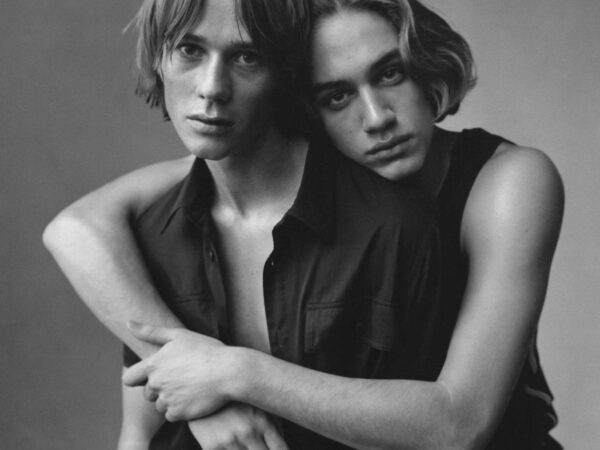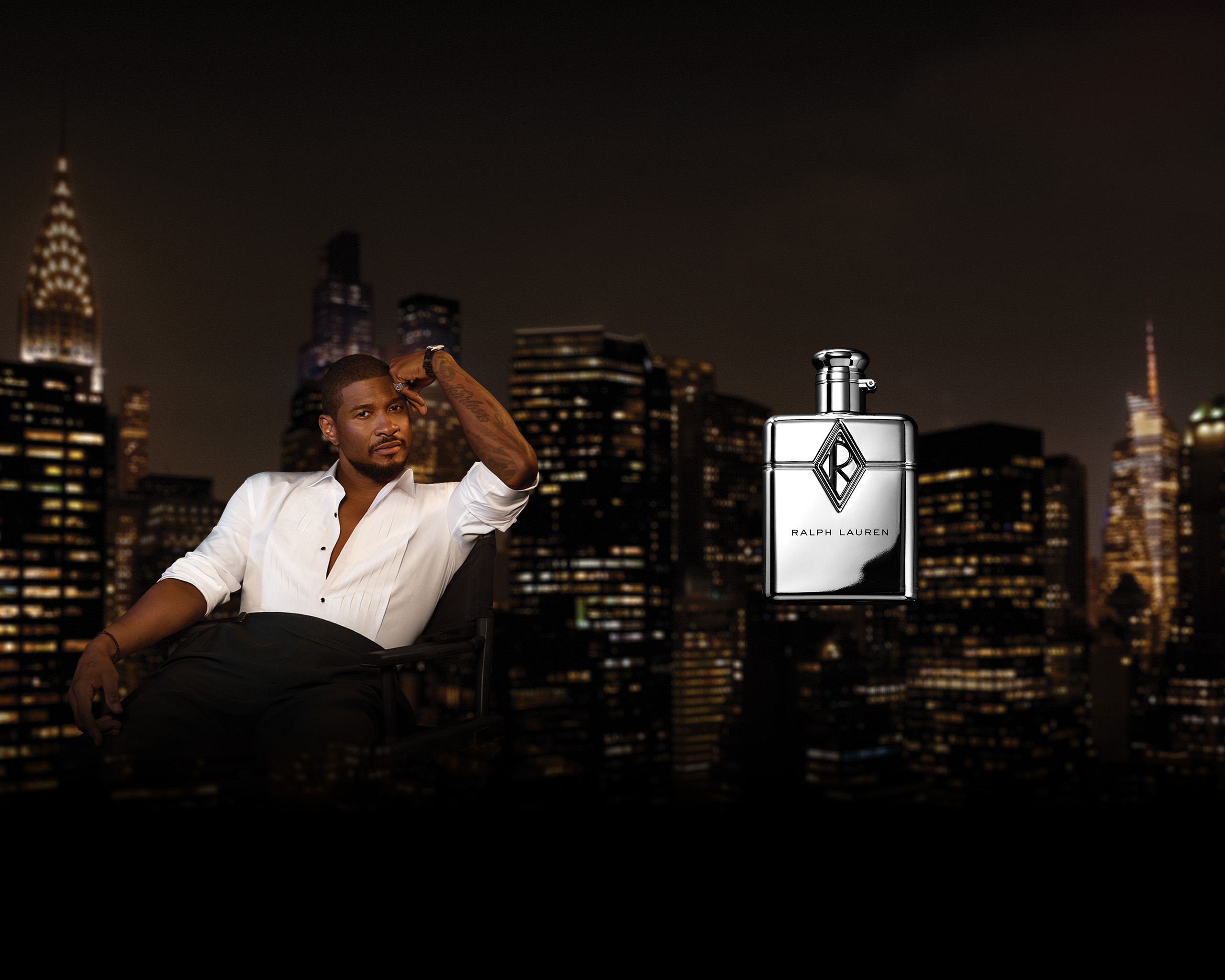‘Jeremy in Paris’: In a video directed by Michael Seater for Document, the world renowned playwright and It Boy shows the titular character how it’s done
Despite its relatively low stakes, Emily in Paris inspires volatile reactions from its disciples and its adversaries alike. The title character’s career is built in her affinity for tackiness, or as the French call her, ringarde—a seeming wink at the audience as the show understands that its tackiness is exactly its appeal. It’s not trying to achieve the same type of artistic acclaim or complexity of thought as Succession, or Euphoria, yet it has managed to match such series in its permeation into global consciousness.
For Jeremy O. Harris, a real-life It Boy of his generation, Emily in Paris is a guiltless pleasure. The Tony Award nominated playwright has widely and shamelessly promoted his love for the series in an attempt to manifest his way onto it. He’s publicly gossiped about it with Mel Ottenberg in Interview Magazine, taken to online declarations of love, and even starred in his own rendition of the show, aptly titled Jeremy in Paris. In the video tribute, created by filmmaker Michael Seater, Harris, like Emily, stands out against the subtle elegance of the Parisian crowd. Unlike Emily, Harris is distinctive not because he doesn’t belong (he does), but because his elegance is loud.
For Document, Seater and Harris reconnect to discuss the saccharine delight of Emily in Paris, and Harris’s role in its second season.
Michael Seater: Hi, how are you doing?
Jeremy O. Harris: Good, how are you?
Michael: Good, good. I feel like—well, I know that the last time you did an interview that had to do with Emily in Paris, you had just been nominated for a million Tonys, and now you’re doing another interview and you’ve been nominated for a million Spirit Awards.
Jeremy: Yeah, it’s insane.
Michael: And then, so when we were in Paris this summer, and making this video, and you were filming Emily in Paris, I had no idea that you actually lived in Paris as a teenager for winning a French-speaking competition. Right?
Jeremy: I lived in Rouen, not Paris, but I lived in France. We visited Paris for like, two weeks at the very end of it. Which was very formative for me.
Michael: And did you stay with a family when you were there?
Jeremy: Yeah, I did. But I unfortunately never kept up with them, because, as you know, France in my childhood was a lot of trauma. So I just sort of, like, blocked out most of my experience, which was really dark.
Michael: Well, I mean, when we were there, I thought you spoke incredible French. And you were being very timid about it, because you had said, like, ‘Oh, there are certain words I don’t remember how to say.’ And Chloe [Wise] was like, ‘Just say, Comment dites-vous…’
And over the course of a couple days, you just flourished, and it seemed to all come back to you.
Jeremy: Not all of it. But I definitely do feel like when I’m more drunk, which we spent a lot of that trip being, my French is very, very good. [Laughs] So that makes me very excited—that, one day, I will not just be a drunken French-speaker, but a normal French speaker. Especially because my boyfriend speaks French fluently. There’s a great opportunity there, I think. For me to, like, really get good at French.
“So that makes me very excited—that, one day, I will not just be a drunken French-speaker, but a normal French speaker.”
Michael: How do you experience Paris today, compared to how you experienced it then? I’m sure, very differently.
Jeremy: Well, one thing is just like, fiscally it’s very different, right? Because when I was a kid there, I was a kid from a working-class family, no one in my family had ever traveled. My grandma told me, like, ‘I’m so worried about you going over there to France. They drink wine like it’s water there.’ Which is crazy. [Laughs] And she’s like, ‘I don’t want you to come back a wino.’
I also just didn’t have any freedom. There was no freedom because I had no money. So, I think that, because I had that hanging over me the entire time, it was a very different experience to when I go now. If I want to go to the South of France for the weekend, I can. I can just afford to do that myself. Or, you know, buying a pair of €70 sunglasses isn’t a shock to me anymore. So much of living in France, of living in Paris, is about enjoying the fruits that the city has to offer. That’s fashion, that’s ease of travel, that’s food and wine. And I can now afford to eat at all the restaurants I want to eat at or go to all these different places. And that’s kind of exhilarating—because I can finally feel like a real citizen of the world, if you will. [Laughs]
Michael: You picked up travel very quickly.
Jeremy: I did pick up travel very quickly. I figured that one out really fast.
Michael: I think that idea, the dreamlike way of experiencing France, and experiencing Paris, is inherently Emily in Paris.
Jeremy: It 100% is. That’s the thing that’s most sexy about it.
Michael: When the show first came out, and everyone was gagging over it, I put on the first episode and didn’t get it. I was looking for the ‘It’s so bad it’s good,’ and all these things. It didn’t click for me. Then you said you were going off to film it, and you were like, ‘No, no. Watch it. It’s major.’ I started at Episode Two, sick in bed—somehow, that time it wasn’t COVID—and barreled through all of the episodes in one sitting. And it actually is so good. You have to drink the Kool-Aid a little, but the ratios of that sweet sauce are perfect.
Jeremy: Yes, I mean—one of the things I’m most excited about, being on that show, is that I got to learn from Darren [Starr], like, in his presence. And one of the things I learned was how to be a great baker of screenplays. Right? Like, he makes confections. And delicious confections, at that. That’s something I don’t really know how to do as a writer yet. My work as a writer is generally quite alienating for people, and I’ve been trying to learn how to be somewhat less alienating in my work, and Darren has given me the ability to see how they make the sauce—the less-alienating sauce, the more delicious, sugary-sweet, but not so sweet that you get sick from it, concoction that is Emily in Paris, Sex and the City, and, you know, every other show he’s worked on.
Michael: I had drinks with Stephen Joel Brown a couple weeks ago, and we were talking about you. He was talking to me about the process of casting you, and they had no idea that you and Mel [Ottenberg] did that whole piece in Interview Magazine ahead of all this. And cast you before even knowing that was anything, which I think is amazing.
Jeremy: It’s really cool, because I thought that that was why they cast me. Because I basically say in that interview that I want to be cast in Emily in Paris. I try to manifest a lot on the page, right? When I found out that they read about that later, I was like, ‘Why the hell did they pick me?’ I think once I got there, it made a lot more sense. So much of Gregory is aligned with, like, the version of myself that I wish I could be and that I sometimes construct online for people to imagine I am. I’m like, ‘I’m a bitch. Like, you don’t want to fuck with me,’ when actually, I’m not as bitchy as I can pretend to be. I’m, like, not a pushover, but a kitten. So it was really cool that I got to lean into a persona that I’ve built in some spaces online, and then amp him up to, like, 1000.
Michael: Stephen was saying that when they were developing the character they were thinking about André Leon Talley as a major reference point, but also, like, who would be a young version of that. Whether or not they knew you and Mel did that piece for Interview, that actually makes so much sense, in that you are absolutely a fashion darling, a piece of the tapestry, these days.
Jeremy: I guess in some ways I might be Mel’s André Leon Talley if he’s my Anna Wintour, in the sense that I’m, like, right there with him at Interview now, talking through all of my dreams and helping him manifest all of his for the magazine. When I read the script, they said it was an André Leon Talley type. And I was like, ‘But I’m not big enough yet.’ Like, to play that both in stature and in presence. They’re huge shoes to fill. And I’m excited that I might be stepping into them.
Michael: So, tell me about your role, tell me about what we’re going to expect.
Jeremy: The role is small, but it’s impactful. I show up in a way that surprises everybody, because, you know, my character gets to take advantage of [Emily’s] naivete. I am someone who has a history with Pierre Cadeaou, the couturier that she works with that she’s unaware of. She’s only aware of me from Instagram and how big my following is, as Emily would be. And so through a mix of happenstances she tried to get me to do this sort of activation for her that ends up backfiring and making Pierre Cadeaou very upset with Emily and the rest of the Savoir ladies upset with her. I come back again later in the season, and maybe we make amends, maybe we don’t, but I think that what they’re doing is setting me up to be a much larger presence in Season Three.
Michael: There we go. There it is.
Jeremy: That’s what we like to hear.
“I’ve been trying to learn how to be somewhat less alienating in my work, and Darren has given me the ability to see how they make the sauce—the less-alienating sauce, the more delicious, sugary-sweet, but not so sweet that you get sick from it, concoction that is Emily in Paris.”
Michael: Manifest it, baby. I had never been to Paris before our trip. Paris, for me, was always just something I would get to eventually. That eventually was when we were at 3 Dollar Bill, and you were like, ‘Babe, I’m leaving. Come with me to Paris.’ I was like, ‘I have a week in New York and six weeks of luggage with me, I don’t think so.’ Then I was like, ‘Well, what if I met you in a week there?’ I stepped out of the subway and just looked around and was like, ‘Oh, I get it now. I get why everyone’s obsessed with this place.’ And to see it through you, especially, added a whole layer of fabulousness to it.
Jeremy: That first day, there is something quite magical about Paris. I’m really sad that my boyfriend who grew up there doesn’t want to live there ever again. I feel like it’s the kind of place I’d love to live, and knowing that all these Black artists have gone there and thrived—first that comes to everyone’s mind is James Baldwin—also makes it a really attractive space.
Michael: And, of course, Josephine Baker, who’s song “Cest ca la Vrai Bonheur” is remixed so brilliantly by Casey MQ for our film.
Jeremy: There is something about Paris, and being in Europe in general, [where] wild diasporic—like, African diasporic—anxieties exist in every city. There are ways in which the specificities of American Black diasporic anxieties get eroded and you get to look at them through a different lens, then you start to recognize your Blackness and your position as a global citizen in wildly different ways. That’s why I love going to Paris. Paris also has those conversations, like, in the air, because of the history. It’s a city that’s obsessed with its own history, and it reminds you of it all the time.
Michael: When you did your chat with Mel in Interview, you had some notes about what you wanted to see in the next season of Emily in Paris. You wanted to see a ménage à trois. You said you needed a real faggot. Are these notes you shared with the producers? Did you talk about these things?
Jeremy: I didn’t talk to them explicitly, but I did talk to them a lot about the ménage à trois. I think everyone has spoken about the fact that there needs to be ménage à trois on the show.
Michael: Now that there’s a love triangle on the poster, I’m hopeful.
Jeremy: I don’t want to ruin anything for anyone who hasn’t seen it yet. But I do know that there were a lot of fights about it. There are a lot of fights about whether or not specifically Camille, Gabriel, and Emily would have a ménage à trois. And I think that some of those arguments, some of these conversations show up on screen visually.
Michael: Arguments in the fandoms?
Jeremy: Arguments in the fandoms and in the writer’s room. There are some advocates. Strong advocates.
Michael: I’m talking about the new hero poster that has hunky guys and Emily on the poster.
Jeremy: Yes. Well, I mean, I’m waiting for that trouble. I’m rooting for that throuple to happen.
Michael: We live for a throuple.
Jeremy: I think that would be really gorgeous.

















